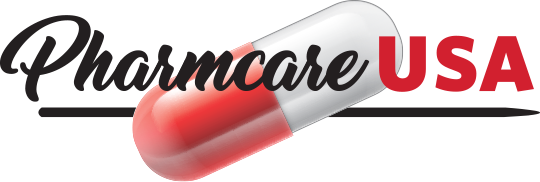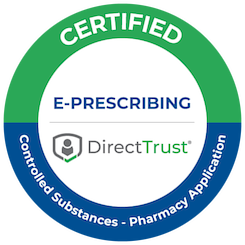The landscape of healthcare is continually evolving, and among the most profound changes is the rise of long-term care (LTC) pharmacy services. These specialized services cater to the unique needs of individuals residing in long-term care facilities, such as nursing homes and assisted living centers.
LTC pharmacy services go beyond merely dispensing medications. They encompass a broad range of activities designed to ensure the safe and effective use of drugs, from prescription management and regimen review to compliance monitoring and delivery. With their patient-centric approach, LTC pharmacy services are emerging as a key player in the healthcare sector, offering numerous benefits to providers, patients, and caregivers alike.
This article delves into the intricacies of LTC pharmacy services, providing insight into their role, benefits, and why they are an essential part of a comprehensive healthcare strategy.
Understanding the concept of LTC Pharmacy
Long Term Care Pharmacy, often abbreviated as LTC pharmacy, is a branch within the pharmacy sector that primarily serves individuals in long-term care facilities. The services provided by an LTC pharmacy are tailored towards the unique medication management needs of individuals who require extended healthcare.
The concept of LTC pharmacy arises from the understanding that patients in long-term care settings have distinct healthcare needs. This is particularly the case for elderly individuals, who often grapple with multiple health conditions requiring complex medication regimens. An LTC pharmacy, therefore, provides specialized care, ensuring these patients receive the right medication, at the right dose, at the right time.
Additionally, LTC pharmacy services are not confined to dispensing medications. They also involve a comprehensive review of a patient’s medication regimen, checking for potential drug interactions, and ensuring compliance with medication guidelines. This holistic approach to medication management underscores the significance of LTC pharmacies in the healthcare ecosystem.
The role of LTC pharmacy in prescription management and regimen review
One of the primary roles of an LTC pharmacy is prescription management. This involves receiving and verifying prescriptions, dispensing the correct medications, and maintaining accurate patient records. In the context of long-term care, prescription management is critical, given the complex medication needs of most patients.
In addition to prescription management, LTC pharmacies undertake regimen review. This is a thorough evaluation of a patient’s medication regimen to identify any potential problems, such as drug interactions, overuse, underuse, or non-adherence. The aim is to optimize the therapeutic benefit of medications while minimizing the risk of adverse effects.
An LTC pharmacy, therefore, plays a pivotal role in promoting patient safety and enhancing the quality of care. By effectively managing prescriptions and reviewing medication regimens, LTC pharmacies can significantly improve healthcare outcomes for individuals in long-term care settings.
Efficiency and Compliance: The Cornerstones of LTC Pharmacy
Efficiency and compliance are the cornerstones of LTC pharmacy. Given the high volume of prescriptions processed daily, LTC pharmacies must operate efficiently to meet the medication needs of their patients promptly. This involves utilizing advanced technology, such as automated dispensing systems, to streamline operations and enhance accuracy.
Compliance, on the other hand, refers to adherence to medication guidelines and regulations. This includes ensuring that medications are used appropriately, stored correctly, and disposed of safely. Compliance is critical in maintaining patient safety and preventing medication errors.
Furthermore, LTC pharmacies also ensure compliance with regulatory standards, such as those set by the Centers for Medicare & Medicaid Services (CMS). This involves maintaining accurate records, conducting regular audits, and staying abreast of changes in pharmacy laws and regulations.
Importance of closed door pharmacy in LTC
A closed-door pharmacy is a type of pharmacy that caters exclusively to patients in long-term care facilities. Unlike retail pharmacies, closed-door pharmacies do not serve the general public. Their sole focus is on providing comprehensive pharmacy services to individuals in LTC settings.
Closed-door pharmacies play a significant role in LTC by offering personalized care and attention. They have a deep understanding of the unique needs and challenges of long-term care patients, enabling them to provide specialized services such as medication therapy management, prescription synchronization, and medication adherence programs.
Moreover, closed-door pharmacies often operate around the clock, ensuring that patients have access to medications whenever they need them. This can be particularly beneficial in emergency situations, where timely access to medications can be crucial.
The significance of pharmacy delivery in LTC
Pharmacy delivery is another critical aspect of LTC pharmacy services. Given the mobility challenges faced by many individuals in LTC facilities, having medications delivered directly to them can be a significant advantage.
Pharmacy delivery services ensure that patients receive their medications promptly and conveniently. This not only enhances medication adherence but also improves patient satisfaction. Moreover, delivery services can also help to reduce the risk of medication errors by ensuring that the right medications reach the right patients.
In addition, pharmacy delivery services often include temperature-controlled transportation for medications that require specific storage conditions. This ensures that the integrity of the medications is maintained throughout the delivery process, enhancing their safety and effectiveness.
5 Benefits of LTC Pharmacy Services
Prescription Dispensing and Packaging
One of the key benefits of LTC pharmacy services is efficient prescription dispensing and packaging. LTC pharmacies utilize advanced technology to dispense medications accurately and efficiently. They also offer specialized packaging options, such as blister packs and medication pouches, to make medication management easier for patients and caregivers.
Cost Savings
LTC pharmacies can also yield significant cost savings. By optimizing medication therapy, reducing waste, and preventing medication errors, LTC pharmacies can help to lower healthcare costs. In addition, many LTC pharmacies offer competitive pricing and accept various insurance plans, making medications more affordable for patients.
Error Reduction
One of the primary goals of LTC pharmacy services is to reduce medication errors. This is achieved through a combination of advanced technology, rigorous processes, and specialized expertise. By reducing medication errors, LTC pharmacies can enhance patient safety and improve healthcare outcomes.
Delivery
As mentioned earlier, LTC pharmacies often offer delivery services. This ensures that patients receive their medications promptly and conveniently, enhancing medication adherence and patient satisfaction.
24/7 Service
Many LTC pharmacies provide 24/7 service, ensuring that patients have access to medications whenever they need them. This can be particularly beneficial in emergency situations, where timely access to medications can be crucial.
Examples of LTC pharmacy benefits
The benefits of LTC pharmacy services can be best illustrated through examples. For instance, consider a patient with multiple chronic conditions requiring various medications. An LTC pharmacy can simplify medication management for this patient by offering services like medication synchronization, which ensures that all of a patient’s prescriptions are refilled at the same time.
Another example is a patient who struggles with medication adherence. An LTC pharmacy can help improve adherence by providing medication reminders, personalized packaging, and medication education.
These examples underscore the value that LTC pharmacy services bring to individuals in long-term care settings. By meeting the unique medication needs of these patients, LTC pharmacies can significantly enhance their quality of care.
Why Pharmcare USA is the right Pharmacy for your LTC Facility
When it comes to LTC pharmacy services, Pharmcare USA stands out for its commitment to quality, safety, and personalized care. With a deep understanding of the unique needs of long-term care patients, Pharmcare USA offers a range of specialized services, from prescription management and regimen review to compliance monitoring and delivery.
Moreover, Pharmcare USA utilizes advanced technology to enhance efficiency and reduce medication errors. Whether it’s automated dispensing systems or sophisticated drug interaction checks, Pharmcare USA leverages technology to ensure the safe and effective use of medications.
In addition, Pharmcare USA offers competitive pricing, accepts various insurance plans, and provides 24/7 service, making it a preferred choice for many LTC facilities.
Conclusion
In conclusion, LTC pharmacy services play a crucial role in meeting the medication needs of individuals in long-term care settings. From prescription management and regimen review to compliance monitoring and delivery, LTC pharmacies offer a range of specialized services designed to enhance the safety and effectiveness of medication use.
As the aging population continues to grow, the demand for LTC pharmacy services is expected to rise. Pharmcare USA is well-positioned to meet this demand, offering quality, safety, and personalized care that sets it apart in the LTC pharmacy landscape.
Pharmcare USA can provide your long term care facility with all of these benefits and more. Schedule your consultation today.




